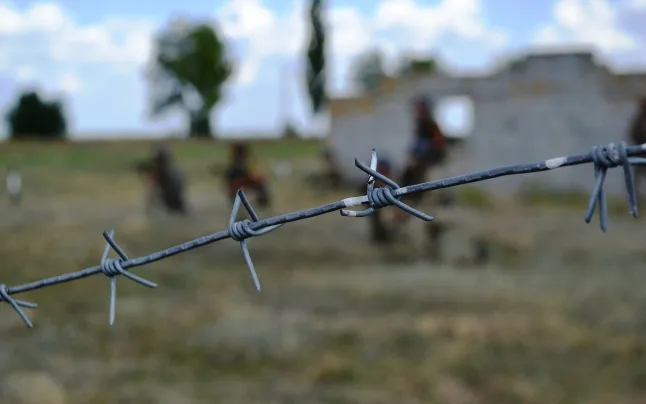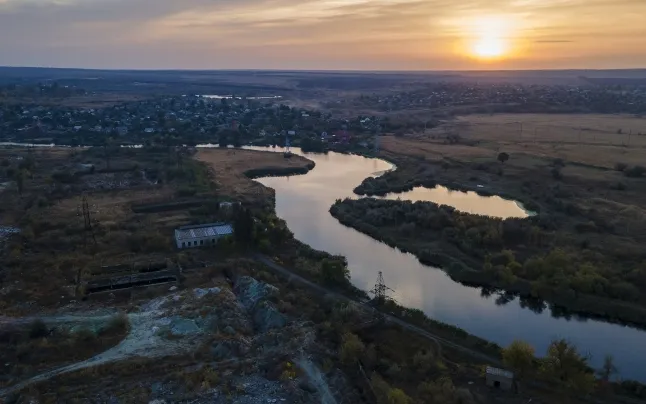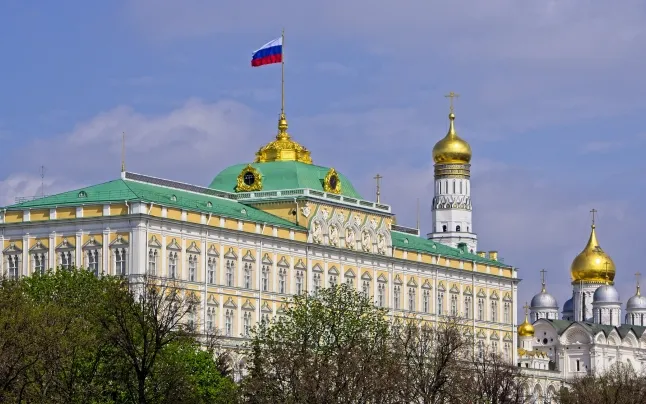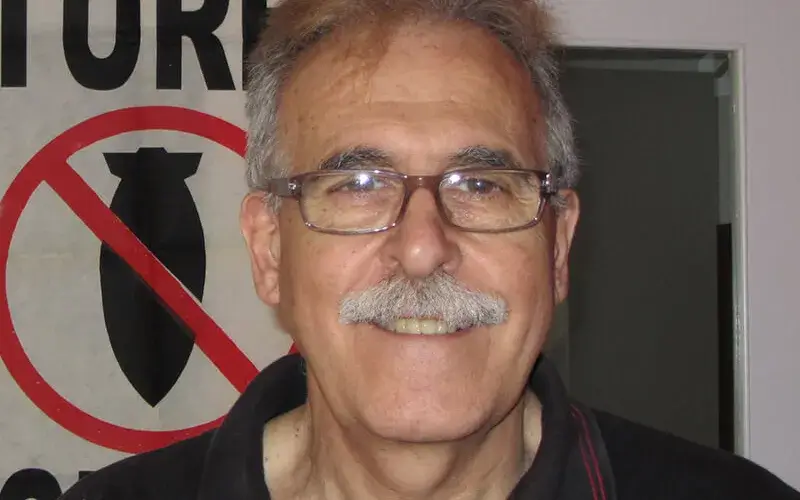Researcher and honorary president of the Delàs Center, Pere Ortega, unravels the crisis that threatens to provoke an open war in central Europe.
The world is watching the escalating tension of uncertain consequences in Ukraine, which has been the focus of international attention for weeks. Is it possible, in the middle of 2022, for an open war in the middle of Europe involving a large part of the world’s major powers? If we look at the public demonstrations of the parties, everything seems to indicate that this point will not be reached; however, their gestures don't invite optimism.
The most significant is the sending by Russia of Vladimir Putin of more than 100,000 troops to the border with Ukraine, in an unprecedented challenge since the Cold War. In turn, NATO, under the command of the United States (US), has also mobilized troops and armaments to Eastern Europe. Meanwhile, diplomatic channels remain open, but so far it has not helped ease tensions and channel the fight.
However, Putin insists he has no plans to attack Ukraine. US President Joe Biden, on the other hand, says the invasion could be imminent, and warned Moscow that the move "will come at a severe and rapid cost". For the time being, Washington has already called on Americans living in Ukraine to temporarily leave the country and has evacuated part of its embassy, a move that Russia has called a "propaganda provocation".
The larval conflict on the Ukrainian stage is very complex and has its roots in history. To understand what is happening, the researcher and honorary president of the Delàs Center for Peace Studies, Pere Ortega, shells out some of the keys to the current crisis, which threatens to trigger a military confrontation on the European continent.
- The origins of the Ukrainian internal conflict
Many of the causes of the current conflict have their roots in the internal division of the Ukrainian population between Western European and pro-Russian supporters. The latter, concentrated in the east and south of the country, where most of its inhabitants are of Russian language and culture and there are many descendants of Russian emigration.
To delve deeper into the origins of this division, which led to the civil war that broke out in 2014, the Delàs Center researcher cites two historical facts that need to be considered. The first dates back to the 1930s, when Joseph Stallin, as part of the five-year plans, caused a major famine crisis among the population of Ukraine, then part of the Soviet Union (USSR), by confiscating their harvests. The result was several million deaths and a growing anti-Sovietism among Ukrainians.
In retaliation, a few years later, in the midst of World War II, Ukrainian nationalist groups sided with Nazi Germany when Hitler invaded Ukraine and exterminated thousands of his fellow USSR supporters. "The population was very hurt by these two events and this is understood to be a division that has been inherited today", explains Pere Ortega.
- Russia and Ukraine: a common story
There are many historical and political myths of the Russian nation that originate in Ukraine - and especially in the Crimean peninsula - without which the origins of contemporary Russia cannot be understood. Ortega cites, among others, the Port of Odessa, where the revolt of the crew of the battleship Potemkin took place, historically considered an embryo of the 1917 Revolution; the Battle of Balaklava, where Russian troops defeated the Turks, the British and the French, or Yalta, the scene of the signing of post-World War II agreements.
However, Ukraine has key geostrategic interests for Russia. Most importantly, the Russian military base in Sevastopol, Crimea, is one of the most important because it has the only exit to the Mediterranean.
All this is of vital importance to Putin, who has been steadfast since he came to power to regain the country's prominence on the international stage, expand his influence in what he calls "the Russian world" and feed the dream of Greater Russia. Ukraine is an essential part of this imaginary, and it is understood that Putin has always maneuvered to prevent the country from falling into Western orbit and has opposed its entry into NATO.
In this sense, the annexation of Crimea in 2014, via a lightning referendum guaranteed by the Russian military presence, was already a declaration of intent.
- The Euromaidan and the Donbass War
The annexation of Crimea took place in the context of the virulent armed civil conflict that erupted in Ukraine shortly before, following the 2014 Maidan uprising, which toppled the government of pro-Russian President Viktor Yanukovych and replaced it with a pro-Western executive. Immediately, the eastern Russian-speaking Donbass provinces rose in arms, with the support of Russia, to gain independence from a Western-aligned Kiev and with the intention of the country integrated into NATO.
It was then that Putin acted swiftly in Crimea, which would return to Russian hands, fulfilling an old Kremlin aspiration. The peninsula, which was key to Moscow's geostrategic interests, was a gift from then-USSR President Nikita Khrushchev to the Soviet Republic of Ukraine in 1954. "Putin was by no means going to accept that Crimea should fall into new pro-Western government in Kiev", said Pere Ortega.
One year after the Maidan uprising and the outbreak of civil strife, which killed thousands and deepened the division of Ukraine, the Minsk Accords were signed, ending hostilities on paper and they declared a ceasefire "which has been difficult to maintain because the clashes, deaths and attacks have always continued", says the Delàs Center researcher.
We are talking about a falsely closed conflict that has so far resulted in nearly 15,000 deaths. Current pro-Western Ukrainian President Volodymyr Zelensky came to power in 2019 with the promise of peace, but hostilities have never stopped.
- Putin and NATO: border tension
Putin's obsession, and the ultimate reason he has mobilized more than 100,000 troops on the border with Ukraine, is to prevent the neighboring country - and others like Georgia - from joining NATO at all costs clearly subject to US designs. For Russia, an Ukraine in NATO is a threat. The Russian president recalls that the United States has failed to fulfill its commitment, made since the time of Ronald Reagan and George Bush, that NATO would not expand to Russia's borders and pose a threat.
"Obviously, this commitment has not been fulfilled and NATO has continued to push the borders with Russia, so Putin has some reason to complain", said Pere Ortega.
In the face of this repeated breach, the Kremlin has redoubled its commitment and carried out this troop movement to the border with Ukraine. Putin's demands are clear: for NATO to renounce the integration of more countries and for it to withdraw its forces from the member states closest to Russia, among others. Proposals that Biden and NATO say cannot be guaranteed by arguing that they cannot intervene in the sovereignty of independent countries, as is the case in Ukraine.
- Is an open war in Ukraine possible?
Pere Ortega believes that this stage will not be reached. "More than an open war, what will happen is a continuation of a war of positions between Russia and the United States in Ukraine". We are dealing with a game of chess in which each party has been raising the stakes and the other has responded without any desire to lower the tension. A tension, the researcher points out, is sharpening the US to tip the geopolitical balance towards its interests.
The big loser in a military conflict would be Europe, for many reasons, Ortega is clear. "The dependence, or interdependence, between Western Europe and Russia is very strong, there are many economic interests between the two sides, especially in terms of exports of gas and crude oil, not to mention the disaster that would be a war on the center of the continent".
By contrast, the US, despite having significant interests in Europe, is even reaping some benefits from the situation. "Since the conflict in Ukraine, the Nord Stream 2 pipeline, which carried Russian gas to Europe, has been shut down, and Washington has tripled gas sales in Europe", Ortega said.
The only way to silence the drums of war is through diplomacy. Ortega is betting that the European Union will break away from NATO and seek neutrality that will help reduce tensions. He proposes that he press for the implementation of the Minsk Accords and appease the pro-Western government of Kiev to accept the autonomy of the Donbass territory within Ukraine. An extreme that could be accepted by both the Donbass and the current Ukrainian government, although this is not the case at the moment.
Besides, the researcher says, NATO should live up to its commitments and stop pushing Russia's borders. "This is an artificial conflict created between two powers; Russia and NATO, or the United States; in which the only one affected is Europe", he concludes.







Add new comment